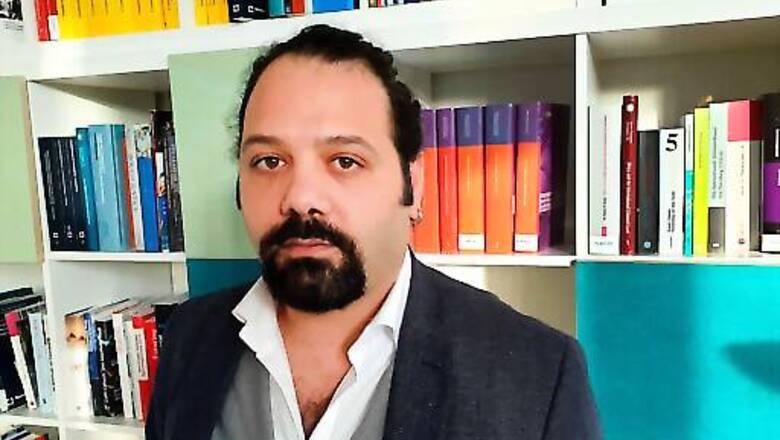
views
BERLIN A Syrian refugee in Germany spoke of his relief after being able to testify Wednesday at the trial of two ex-members of Syria’s secret police who are accused of crimes against humanity, the first high-profile case worldwide against former officials during the long-running conflict.
Wassim Mukdad, who fled to Germany four years ago, is among more than a dozen alleged victims testifying before a regional German court about the abuse they suffered at a Syrian government detention center where thousands of opposition protesters were tortured.
The main defendant in the trial is Anwar Raslan, a former member of Syrias secret police suspected of overseeing the abuse of detainees at the notorious Al Khatib jail near Damascus, also known as Branch 251.
German prosecutors accuse Raslan of supervising the systematic and brutal torture of more than 4,000 prisoners between April 2011 and September 2012, resulting in the deaths of at least 58 people.
A second suspect, Eyad Al-Gharib, is accused of being part of a unit that arrested people following a demonstration in the Syrian city of Douma and took them to Branch 251, where they were tortured. The defendants lawyers couldnt be reached for comment Wednesday.
Speaking to The Associated Press by phone after his testimony for the court in the city of Koblenz, Mukdad said that being able to recount what had happened to him nine years ago was a strange feeling, but also a kind of relief.
“I’m relieved to let the feelings and memories out in a productive way, he said.
Mukdad, who is among several survivors being supported by the European Center for Constitutional and Human Rights, said he recounted to the court how he was detained off the street and mistreated on the way to the jail.
Once there, he was kept blindfolded for five days and interrogated three times, he said. During each interrogation, Mukdad said he was forced to lie on his stomach and stretch his legs upward; when Mukdad’s answers displeased the interrogator, he ordered the prisoner’s feet or legs to be beaten.
Mukdad said he was later transferred to another site where almost 90 men were held in a room so small that prisoners couldn’t sit or lie down, and where a daily ration of food sometimes consisted of only a handful of olives.
Mukdad said he lost 37 pounds during his 17 days in detention.
He told The AP that he hopes the trial will embolden other victims of human rights abuses in Syria and elsewhere to feel that they, too, might get their day in court.
Asked about his feelings toward the defendants, Mukdad said he harbored no personal grudge.
I’m not there to have revenge against them, he said. “I don’t care how they react. I care how the justice system reacts.
If convicted, Raslan could face life imprisonment if convicted of crimes against humanity, murder and rape. Al-Gharib could be sentenced to up to 15 years in prison if convicted of complicity in crimes against humanity.
The trial is expected to run into 2021.
Disclaimer: This post has been auto-published from an agency feed without any modifications to the text and has not been reviewed by an editor




















Comments
0 comment